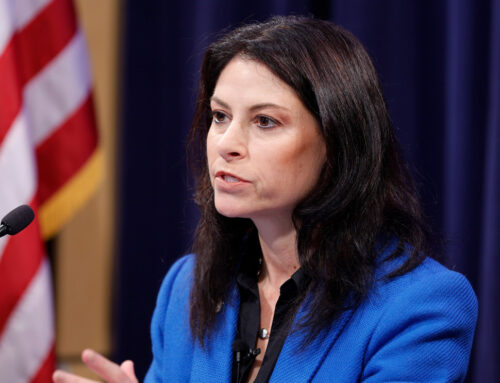The Most Cathartic TV I’ve Seen in Ages Came From a Show I Absolutely Did Not Want to Watc
April 26, 2025
I wasn’t exactly thrilled when I read that the new animated series #1 Happy Family USA, created by Ramy Youssef and Pam Brady, is set in the immediate aftermath of 9/11. Like a lot of Muslim Americans my age, I’ve spent the last two decades trying to move past that particular trauma. Though I was only 11 on that day, I still feel the remnants of everything it unleashed: the illegal surveillance, the “random” searches, the way we became afraid to appear too Muslim in public, and molded ourselves into smaller, more palatable versions of ourselves.
It’s not that I’d rather forget what happened. It’s that I’ve been hungry for something—anything—that doesn’t center our identity on how afraid other people are of us. I’m exhausted by art that defines Muslims as defiant of stereotypes by once again portraying us through those stereotypes. So, I didn’t think I needed another show about 9/11, especially not one where a happy Muslim family tries hard to prove they aren’t terrorists.
But Youssef, as he often does, still has an appetite to go where his viewers don’t really want him to go. And teamed with Brady, a onetime South Park writer, he has delivered some of the most cathartic television I’ve seen in years.
From the first episode, #1 Happy Family USA eerily nails a moment when Muslim life in America suddenly became a spectacle, almost to the point it came off as nostalgic. An Egyptian American family in northern New Jersey finds its already-chaotic life hyperpoliticized overnight, and they struggle to gauge how to fend off the suspicion of their neighbors, haphazardly and hilariously reinforcing those suspicions as they go. As a Muslim kid who also grew up Egyptian in New Jersey, I couldn’t always tell what was satire and what was just … how life was back then.
Youssef has essentially animated the paranoia, pressure, and confused dual identity that so many of us lived through after 9/11, filtered through his “demented childhood nightmares,” as he puts it in the show’s disclaimer. From the father incorrectly inserting “Jesus Christ” into everything he says to the daughter discovering the power of the phrase “As a Muslim woman …” for extracting sympathy from white people, the show moves at a hurried pace and delivers jokes specific to the Muslim experience without pausing to explain itself. Arabic phrases whiz by untranslated. A pack of cigarettes is labeled “Mushkila” (“Problem”). You’re either in on the joke or you’re not.
And there are few limits in how far those jokes go. Rumi, the 12-year-old son, accidentally deploys a bioweapon at a pool party. Rumi’s mom, Sharia, befriends an undercover FBI agent who introduces herself as “Carol, from Mecca. Straight from the source.” Rumi’s dad lands on a Fox News knockoff show as a Muslim willing to denounce other Muslims. It’s all over the top—but it’s also not. You can’t figure out when to laugh and when to wince.
Youssef has said in interviews that he’s not interested in representing Muslims or Arabs or even Jersey kids. And that makes sense. It would be impossible. But even if he refuses the mantle, this show still represents something many of us feel deeply. My dad drove a taxi (not a halal truck, but close), and the show captures something I’ve never quite seen on television, in a surprisingly compressive way. #1 Happy Family USA doesn’t just tell one story: It accounts for different generations: kids, parents, elders. It shows the compromises they make, the fantasy of assimilation, the determination to resist. And it does so in a way that refuses to sanitize or flatten anyone.
It feels like the clock has turned back. And in that context, #1 Happy Family USA isn’t just cathartic. It’s necessary. It reminds some viewers of a moment we never got to narrate and gives us the chance to enter it into the record. It doesn’t ask Americans to see Muslims as more fully human. It asks Americans to sit with how ridiculous and dangerous their fear was, and still is.
So despite my skepticism, #1 Happy Family USA isn’t a retread—it’s right on time. It is painful how plausible many of these “dated” jokes feel in the political environment we’re entering. And yet the show is not a familiar, obvious call for empathy; it’s actually the opposite. It trusts the audience to be smart enough to get it, or not. It says: We’re not going to stop to explain what astaghfurallah means anymore, and you’re going to laugh regardless. That’s the most important piece: #1 Happy Family USA is extremely funny, even if you don’t get every joke. It is a Saturday afternoon adult cartoon binge you will be surprised how much you needed.
Search
RECENT PRESS RELEASES
Related Post




